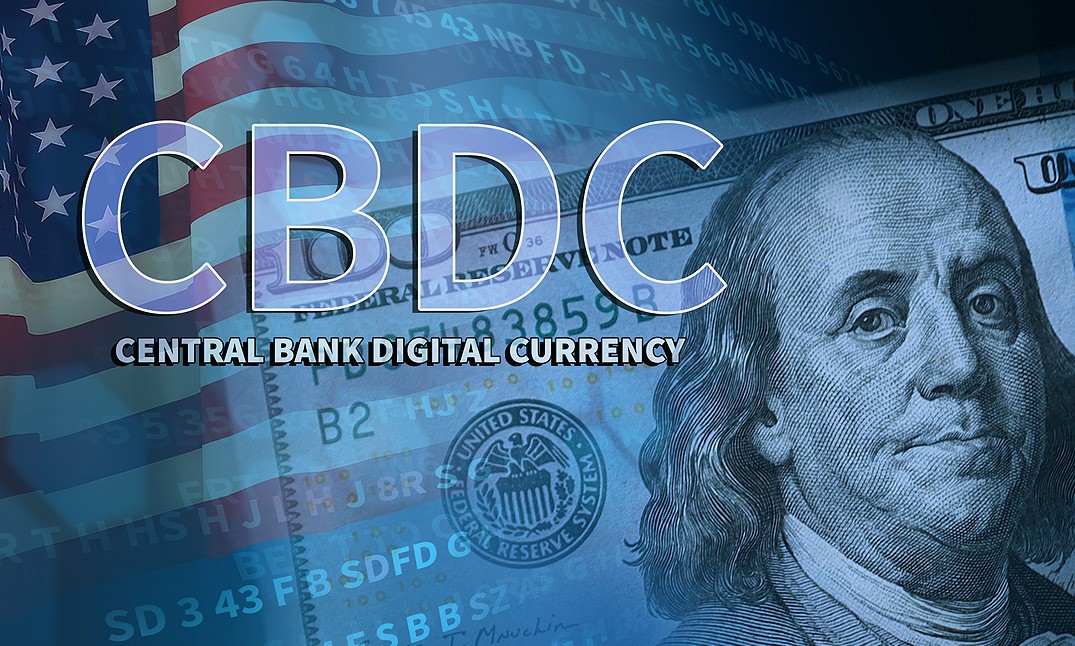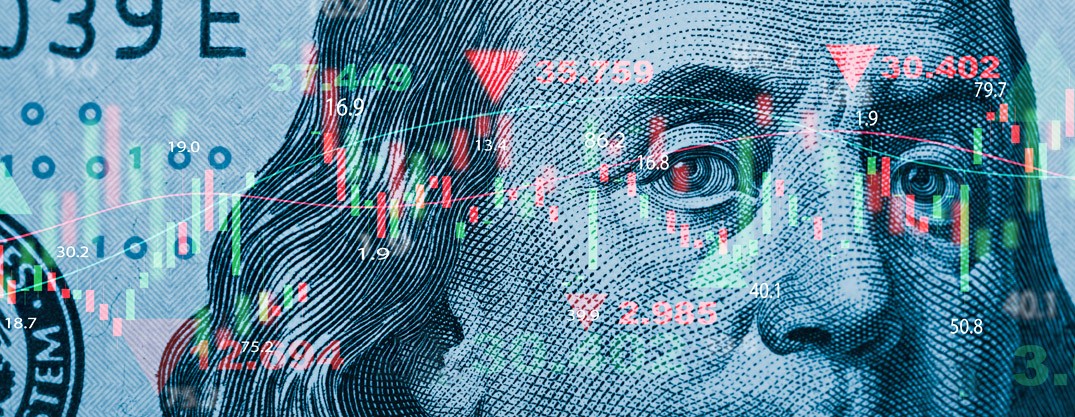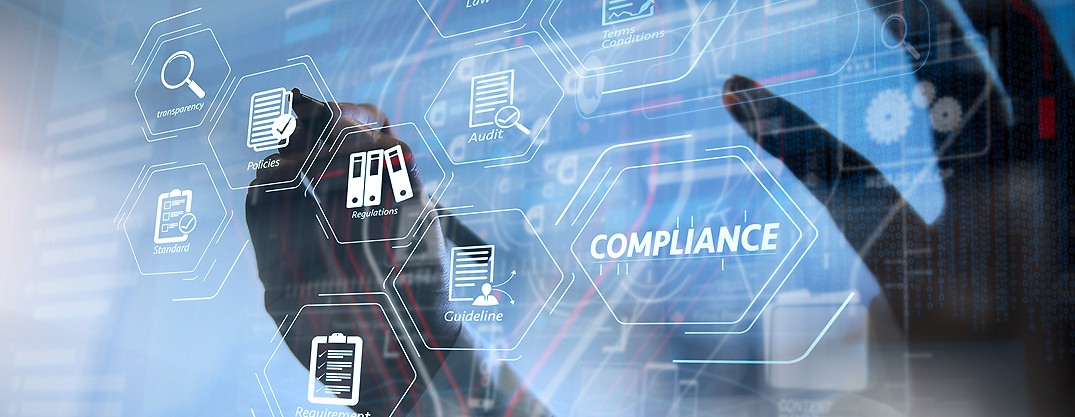
The U.S. dollar’s strength and dominance are eroding at an alarming rate, paving the way for the introduction of a Central Bank Digital Currency (CBDC). This future digital currency is being promoted as a convenient alternative that could potentially replace America’s monetary system, one that’s been in place since the 1700s.
In reality, the use of CBDCs would pose substantial risks for U.S. citizens who are used to a traditional currency system that offers privacy and independence in their financial transactions. Moving away from this would lay the groundwork for what could arguably be the most significant intrusion upon financial privacy for citizens in the United States and other countries that implement them.
The Threat of CBDCs to Financial Privacy & Independence
The implications of a digital U.S. dollar extend far beyond just a loss of privacy; they open a Pandora’s box of governmental control over personal financial activities. Imagine a scenario where every transaction is visible to the central bank and could be controlled or restricted based on government mandates.
Senior Professor of Trade Policy at Cornell University, Eswar Prasad, reveals his opinion on this, “In authoritarian societies, central bank money in digital form could become an additional instrument of government control over citizens rather than just a convenient, safe, and stable medium of exchange.”
The bottom line is that if a full-scale launch of CBDCs is successful, this transition will threaten the very essence of freedom as we know it.
It Starts with an Orchestrated Collapse of the U.S. Dollar
The U.S. dollar has been on a clear and steady downward path for a long time now, with its destruction being fast-tracked over the past few years. This acceleration has been evident in the fact that we seem to be witnessing a deliberate effort to undermine the U.S. dollar, orchestrated by globally influential figures and political leaders, and the endgame could be the establishment of the U.S. dollar’s replacement with a Central Bank Digital Currency.

As it stands, with the government’s spending sprees that have been taking place, which include funding multiple wars with billions of dollars, among other things, has led to a national debt of over 34 trillion. The United States is also set to lose its reserve currency status due to all this spending – they’re effectively running the U.S. dollar into the ground.
Related Article: A Ticking Time Bomb – National Debt Growing by $1 Trillion Every 100 Days
Think about it, why would they allocate billions that they don’t have, to a losing war in Ukraine, risking devaluing the dollar and losing the dollar’s dominance internationally? This dominance is what gives Washington its economic and political power, not just in the U.S., but within other countries as well.
The path they’re on will ensure that U.S. power will dissolve, so they must have a good reason for driving the dollar into the ground. Perhaps it’s to pave the way for an alternative financial system that would gain authority and influence over the American people in a way that has never been seen before in U.S. history. While this perspective may appear exaggerated, or similar to a conspiracy theory, if you do extensive research on the ins and outs of CBDCs, it reveals clear concerns regarding privacy erosion and potential loss of freedoms.
Selling a Lie – the Illusion of CBDC Security & Convenience
Central bank digital currencies are often presented as the future of financial transactions, promising enhanced safety, convenience, efficiency, reliability, and speed. Many argue that by streamlining processes and integrating advanced technologies, CBDCs could revolutionize how daily transactions are conducted, reduce costs, and provide other advantages. In reality, lurking beneath these supposed advantages and benefits are a multitude of alarming issues.
A Government-Controlled Programmable Digital Currency – What Could Possibly Go Wrong?
If you look beyond the presentation of convenience and speedy transactions, you start to see cracks in the concept that reveal grave risks. On top of this, if you pair the risks of using CBDCs with being issued a digital ID and a possible WEF pandemic treaty, where citizens must comply with mandates, you have a recipe for a personal freedom disaster across the U.S. for those who don’t comply. If this seems a bit far-fetched, continue reading to get a glimpse of the harmful potential of a CBDC monetary system.
A Central Bank Digital Currency is the Gateway to Unprecedented Financial Surveillance
Central bank digital currencies raise the possibility of an unprecedented level of financial surveillance that’s not possible with traditional currencies like the dollar. Unlike physical cash, which offers anonymity and privacy, CBDCs are digital, so they can allow authorities to monitor transactions in real time. This digital financial link from a citizen to the central bank could drastically transform the landscape of financial privacy, granting the government the potential to oversee every single financial transaction within the nation.

Regarding this, Heritage Action for America makes the point, “While Americans across the country are being punished for thinking, speaking, and voting the ‘wrong’ way, the last thing we need is the government surveilling personal finances. A central bank digital currency is a fixed-value, government-run crypto-like currency that replaces the dollars in your bank and wallet.”
Natalie Smolenski, Bitcoin Policy Institute, comments on the issue of surveillance as well, “Those calling for the rollout of a CBDC are naive to believe that this can be done without establishing a centralized surveillance system for all financial transacting. Quite simply, even if such surveillance is not included in the design, it would be trivial to add it at a later stage. Once a door to surveillance is opened, it is virtually impossible to close.”
It’s easy to dismiss concerns about financial transaction surveillance with the argument that one has nothing to hide. However, there are more layers to this, specifically, possible mechanisms of financial control that make the thought of this door actually opening very frightening.
They’ll Have the Power to Freeze, Seize and Program Spending Limits
A shift from physical to digital currency in any country could grant governments an unparalleled level of control over their citizens’ financial activities. If given the ability to monitor or freeze digital money, they could easily influence and even punish with the push of a button.
For instance, if a government shoots for a net zero carbon emissions goal and feels you’re going over your carbon footprint with certain purchases, they could program limits. This could be done under the guise of safeguarding the environment.
The tracking technology is already here – in 2019, Mastercard, along with Doconomy, launched a carbon footprint calculator paired with a credit card that allows you to voluntarily turn off charging capabilities if you go over your carbon footprint limit. As explained by Mathias Wikstrom, Chief Executive Officer, Doconomy, “By engaging a whole industry in enabling individual insights as well as collective action, Mastercard has redefined the role the financial industry can play every day in tackling the climate crisis.”
CBDCs Could Be Programmed to Block Specific Purchases Similar to EBT Cards
The ability to prohibit certain transactions could be easily done through CBDCs, especially since the technology that prohibits certain purchases has been around for years through EBT (food stamp) spending cards. EBT cards work by allowing shoppers to buy food with them, but not ready-made hot food. Paper goods, detergents, and other non-food items are prohibited, and so is pet food, and a whole host of other items. What happens when items are placed on the conveyor belt at the grocery store? All the approved items are paid for, and the prohibited items are declined. If the user finds a way around the system and purchases prohibited items, they risk losing their benefits and face penalties.
CBDCs could be programmed just like EBT cards to restrict purchases of certain goods or limit spending amounts, directly manipulating and monitoring citizens’ spending habits. Former Representative Justin Amash, touches on this, “A digital U.S. currency would be one of the most dangerous developments in history. When the government can simply flip a switch to block all your transactions, it controls your entire life. We need a wall of separation between money and state.”
Marta Belcher, Filecoin Foundation, comments on this as well, “CBDCs are a nightmare for civil liberties. They put governments at the center of every transaction, giving governments visibility into financial transactions and the ability to revoke money.”

If you think we’re not headed in this direction, listen carefully to what those in high places have to say and you’ll get hints of their plans. For example, in 2023 at the Global Finance Summit in Paris, French President Macron was quoted as saying, “The world needs a public financial shock to fight global warming, and the current system is not suitable for dealing with the world’s challenges.”
A U.S. Digital Currency Will Dismantle Current Financial Markets
CBDCs not only affect our freedom and privacy, but they also pose a big risk to the current financial system. They could weaken traditional banks, challenge cryptocurrencies, and give too much control over the money markets to one establishment. ABA President and CEO Rob Nichols comments on this, “ABA has long believed that a CBDC would pose significant risks to our financial system that would outweigh any potential benefits, including undermining the critical role that banks play in extending credit and powering the economy.”
Regarding banks, although (they say) it won’t replace cash, there’s a new form of digital money in the works in the UK, dubbed the Britcoin, that could be introduced in the years to come. In the initial phase, people will be blocked from hoarding the new “digital pounds” issued by the Bank of England, and will only be allowed to transfer a few thousand “digital pounds” into their accounts. The initial restriction would be set to prevent rapid, large withdrawals from traditional banks, since it could negatively impact their operations. This is a glimpse into how traditional banks could become obsolete if all transactions were eventually processed by a central bank, eliminating our ability to select a bank that we prefer.
Spreading (Your) Wealth to Those in Need
Limiting how much you can store in an account brings to light the political topic that frequently comes up regarding reducing financial inequality and shaming those who have too much money. If we make the switch to a central bank digital currency, what if the system feels someone has too much money for one person? Will they simply transfer wealthy citizens’ money out of their accounts and spread it to those in need?
Are you starting to see the big picture now on how dangerous replacing our current monetary system with government-controlled CBDCs would be?
Smart Politicians Pushing for a CBDC Anti-Surveillance State Act
We’ll come to a close with a statement that captures the core of the issue:
In response to a CBDC Anti-Surveillance State Act that was reintroduced in 2023 by House Majority Whip Tom Emmer, President David McIntosh of Club for Growth makes a powerful statement, “Two world visions for the future of digital currencies are in conflict: China and a Central Bank Digital Currency, where government creates digital assets and surveils, spies, monitors, and restricts consumer behavior versus an American free marketplace that enables private competition that protects consumer data, allows economic freedom, enables innovation, and encourages competition.” U.S. Sen. Ted Cruz joined in a more recent attempt by introducing legislation to ban central bank digital currencies.
It’s not so far-fetched that a central bank digital currency will infringe on U.S. citizens’ financial privacy and freedoms, if given the chance, not by any means. With a possibility such as this, it would be wise to protect your wealth by locking in tangible assets such as gold or real estate. This would shield your wealth from government control, the economy, inflation, as well as the volatile stock market. If you’d like to find out how to easily invest in rental real estate, feel free to contact Morris Invest, or visit our program overview page for more insight.
Before you go, dive into the following video that details the end of the U.S. dollar as we know it:
Ready To Build Passive Income Through Rental Real Estate?
Ready to talk about your goals? We're here to show you the tools and teach you the process to begin earning legacy wealth for you and your family.





